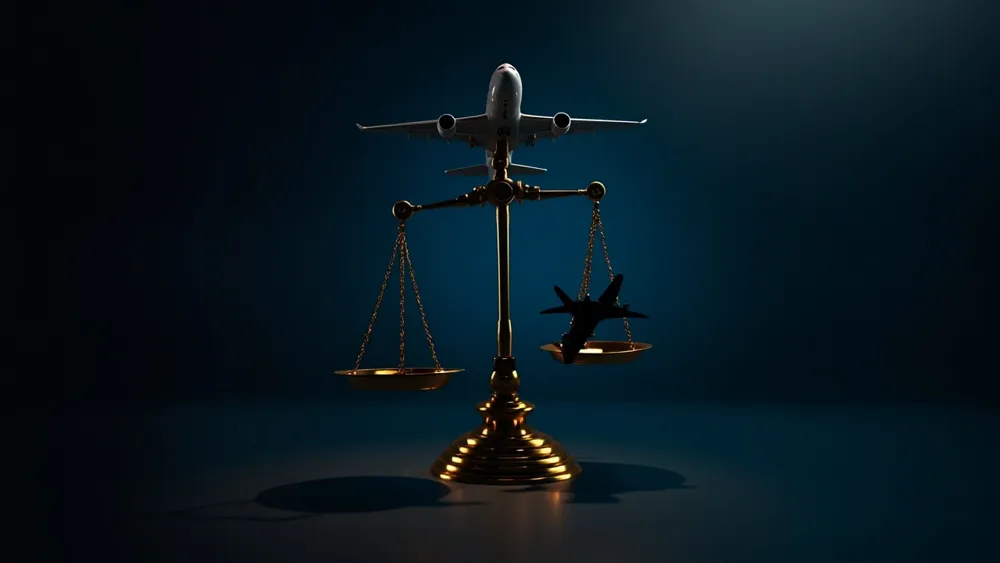Boeing, Justice Department reach deal to avoid prosecution over 737 Max crashes

The recent agreement between the U.S. Justice Department and Boeing to avoid prosecution over the tragic 737 Max crashes is not merely a legal footnote but a significant marker highlighting profound implications in aviation safety, corporate accountability, and regulatory scrutiny. With the deal allowing Boeing to sidestep criminal charges while agreeing to invest over $1.1 billion in compliance and safety initiatives, the specter of regulatory leniency amidst corporate malpractice raises pressing questions for stakeholders across the aviation industry and beyond. As we delve into the operational repercussions and systemic risks showcased by this case, it's crucial to recognize the broader narrative of corporate governance and the challenges of enforcing accountability within colossal companies.
At the core of this deal lies a troubling tension between corporate interests and public safety. With Boeing's payment of a $487.2 million fine and subsequent investments aimed at enhancing safety and compliance procedures, one could argue that the financial outlay serves as a band-aid solution rather than a conduit for genuine structural reform. The DOJ justified the non-prosecution agreement, citing its ability to avoid the uncertainties of litigation. However, the emotional resonance and the unmet calls for accountability from the victims' families suggest a fundamental flaw in prioritizing expediency over justice. As Boeing continues to operate as a major military contractor and competitor to Airbus, one has to wonder: is this outcome indicative of a systemic bias favoring large corporations at the expense of victims? Could this precedent shift the perception of accountability in other high-stakes industries, from pharmaceuticals to finance, where similar discrepancies between accountability and profitability exist?
Moreover, this scenario elicits comparisons with historical precedents, such as the 2008 financial crisis when too-big-to-fail institutions were effectively shielded from severe consequences due to their economic clout. Just as Lehman Brothers' collapse served as a wake-up call to the systemic risks posed by inadequately regulated financial products, Boeing’s saga may unveil the perils entwined with corporate governance in a sector where safety is paramount. Notably, the insistence on non-prosecution echoes sentiments from the dot-com bubble, where reckless corporate behavior was often overlooked until severe economic repercussions prompted regulatory introspection. The investors, regulators, and consumers must now recalibrate their focus on these burgeoning risks, considering whether today's settlements will perpetuate a cycle failing to address the ethical imperatives necessary for avian safety.
In conclusion, while the Justice Department's agreement with Boeing reflects a pragmatic approach to corporate prosecution, it simultaneously cultivates a delicate balance between accountability and corporate survival. This non-prosecution deal serves as a clarion call for the aviation sector and, by extension, other high-risk industries, prompting reflection on whether the trade-offs we make in the name of expediency could set a troubling trajectory for regulatory practices. Investors should remain vigilant, keeping an eye on how the fallout from such arrangements could morph into broader market implications—investments in companies that might prioritize growth over compliance could pose significant long-term risks. As we navigate this evolving landscape of accountability, the key question remains: how can we foster a culture of corporate governance that prioritizes public safety without compromising innovation?
Read These Next

State Internet Information Office to rectify online financial information chaos.
China is clamping down on false online financial info to protect investors and maintain market order, boosting investment safety awareness.

Fallout from Trump's Meme Coin Gala: Political Implications and Market Volatility
Trump's gala for the $TRUMP meme coin illustrates the volatility within cryptocurrencies and its connections to politics, reshaping regulatory conversations around stablecoins amidst investor concerns.

Navigating Changes in 华夏黄金主题证券投资基金 (LOF): Operational Updates and Investor Considerations
Analysis of the announcement regarding operational changes in 华夏黄金主题证券投资基金 (LOF) and its implications for investors.
